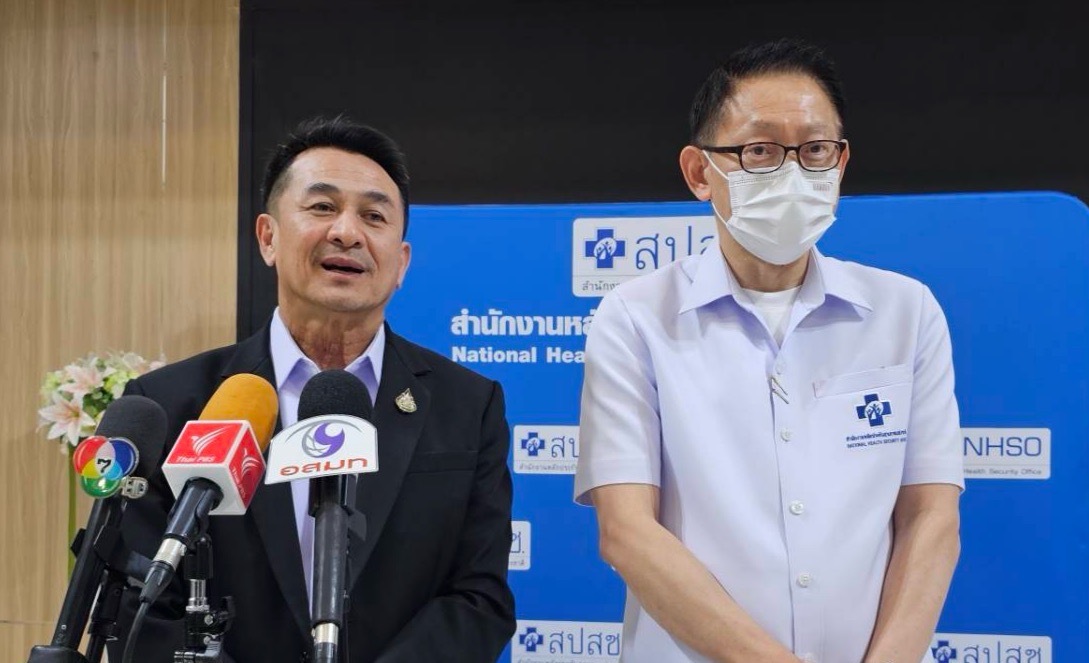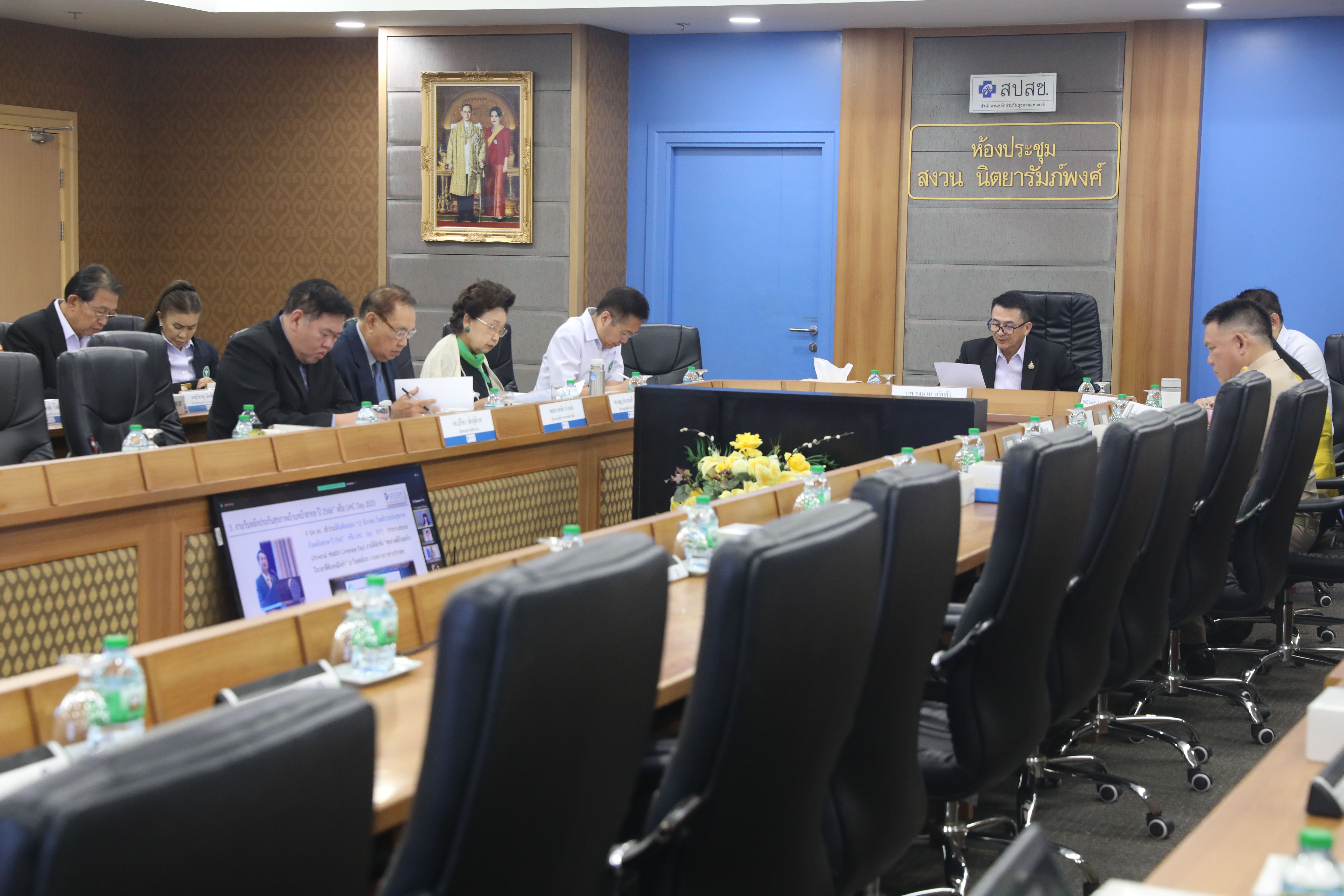
- Home
- DescriptionNews
UCS to cover proton therapy for cancer patients

UCS to cover proton therapy for cancer patients
The National Health Security Board (NHSB) approved proton beam therapy for cancer patients under the Universal Coverage Scheme (UCS) with a capitation of 50 million baht per year to Her Royal Highness Princess Maha Chakri Sirindhorn Proton Center, the only proton center in Thailand, aiming to reduce side effects of treatment and improve efficacy for cancer patients.

This newly added benefit received approval during the NHSO board meeting on 25 December, chaired by Minister of Public Health, Dr. Cholnan Srikaew, after to the proposal put forth by NHSO deputy secretary-general Waraporn Suwanwela.
Dr Cholnan emphasized the Thai government's commitment to a "comprehensive cancer care" policy to ensure that cancer patients have access to high-quality treatment and an improved quality of life.
He also highlighted that upgrading relevant UCS benefits is pivotal to achieving this policy goal.
The minister stated that the NHSO board's decision to include proton therapy in the scheme would augment the effectiveness of cancer treatment while mitigating its side effects.
Proton therapy involves a precise radiation technique that delivers a beam of protons to disrupt and eradicate tumor cells.
According to NHSO data, approximately 32,000 cancer patients require proton therapy annually, costing around 50 million baht.
NHSO Secretary-General Dr. Jadej Thammatacharee said that the Thai Association of Radiation Oncology proposed this health intervention be included in the benefits package in October 2023 to enhance medical excellence within the national health security system.
Proton therapy stands as an effective method with a high rate of controlling cancer and improving patient survival, particularly among children with brain cancer.

It notably reduces side effects in comparison to conventional photon radiation therapy.
However, this treatment requires specialized medical professionals, including radiation oncologists, diagnostic radiologists, nuclear radiologists, pediatric hematologists/oncologists, anesthesiologists, medical physicists, nurses, and engineers.
The treatment is available solely at the Her Royal Highness Princess Maha Chakri Sirindhorn Proton Center at Chulalongkorn Hospital, the only health facility in Thailand offering such therapy since August 2021.
To cover the treatment expenses for UCS beneficiaries, the NHSO will allocate an annual lump-sum payment of 50 million baht to the center.
This fund will also facilitate the center's coordination of patient referrals and transportation services, with an average transportation fee of 2,300 baht per trip for patient transfers.
"Following the NHSO board's approval, criteria will be established to support reimbursements and promote access to proton treatment," stated Dr. Jadej.

"We will actively monitor and evaluate service accessibility, collaborating with relevant agencies to assess treatment effectiveness every four months, facilitating patient transfers to enhance accessibility and equity."
He further mentioned that the NHSO will engage in discussions with relevant agencies, including the Ministry of Social Development and Human Security, which have the potential to provide support for non-medical expenses related to patient care.

